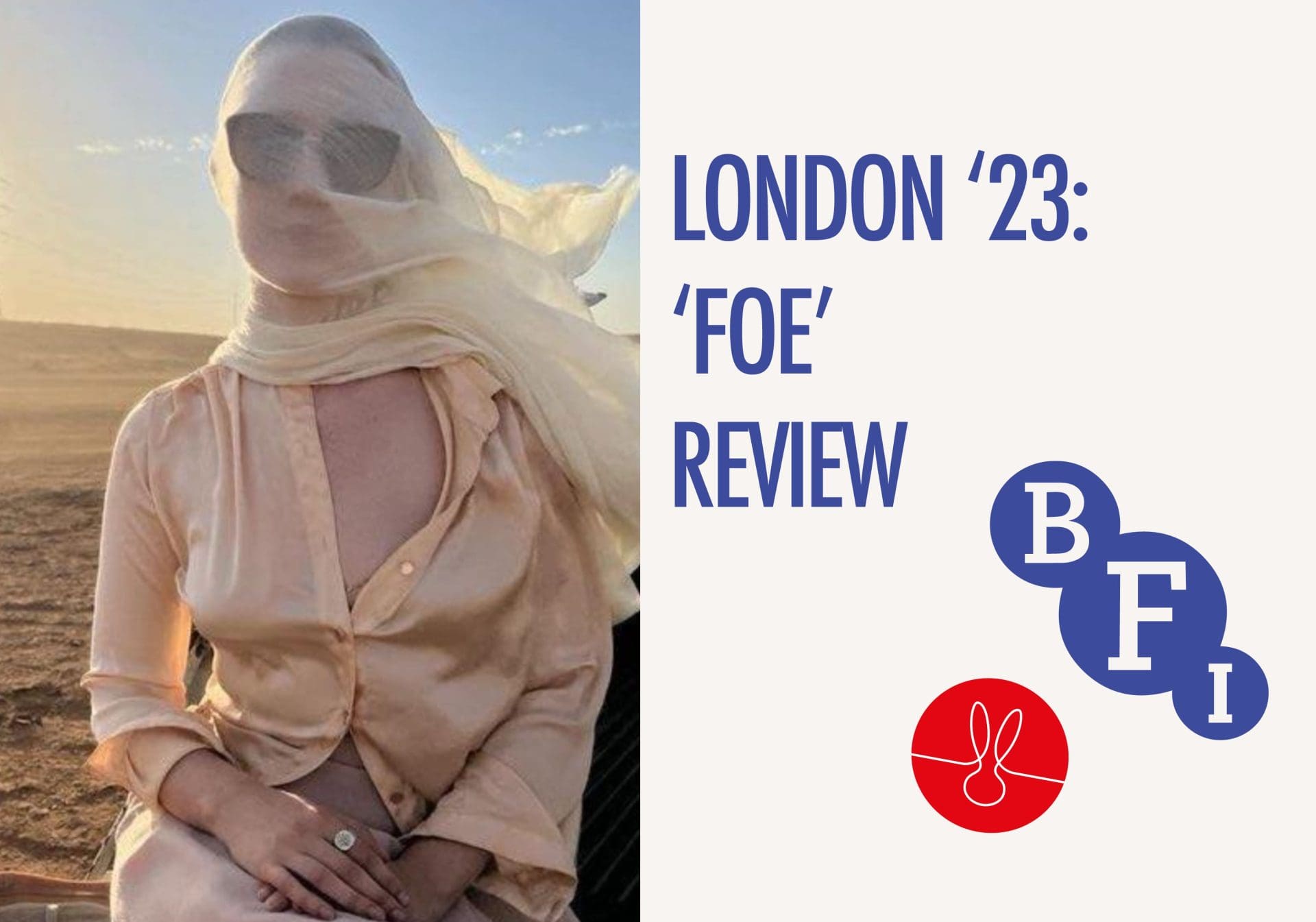
Foe marks an interesting entry in director Garth Davis’s filmography— after Lion (2016), it is the second film in which he attempts to explore the role of technology in the sphere of human relationships. While the emergence of satellite enabled-digital mapping brought a heart-warming closure to the tale of a separated family in Lion, the sinister possibility of AI taking over human functions forms the overarching theme of Foe, which is based on the book by Iain Reid. The film’s screenplay by Davis and Reid has an interesting premise: the year is 2065. Hen (Saoirse Ronan) and her husband Junior (Paul Mescal) are among the last remaining inhabitants at a dried-up farm town in the American Midwest. Water has become a limited, valuable resource. One fine day, a government agent named Terrence (Aaron Pierre) shows up at the young couple’s doorstep, informing them that Junior has been chosen to be part of a space resettlement drive for two years. While Junior is away at space, an AI-envisaged flesh-and-blood duplicate of him would be created to replace him and live with Hen. Davis and Reid fashion a tempestuous marital drama under the shadow of AI on paper, but the results on screen feel far from engaging.
One positive of the film is that it leaves us lingering with a basic question— who is the titular Foe? Is it collective human greed? Is it AI? Is it the government, which is looking to deplete the human population via the space programme to decrease pressure on the earth’s resources? Is it the barren world which is becoming increasingly unliveable? Is it Terrence, whose shady, probing eyes make him a menacing presence in the couple’s existence? Is it Junior, whose controlling, almost misanthropic personality is proving to be the bane of Hen’s existence? Is it their marriage, which is keeping two disparate characters like Junior and Hen together? Are all these answers valid? You be the judge.
Both the lead characters are reasonably well-defined—Ronan’s Hen looks for hope amidst misery, craves the liveliness of human company and appreciates the bounties of nature like a flower or the occasional rainfall. Mescal’s beer-guzzling Junior is the diametric opposite, for he believes that the couple’s dry haven is their blissful destiny. He cannot imagine a life beyond their present time and circumstance. The symbolic differentiator in their personalities is the piano in their basement which Hen plays. Hen reveals to Terrence that Junior hates the music she plays as it represents “affection, possibility.” Any sequence involving the playing of a piano presents spectacular dramatic possibilities (The gold standard being the beautiful piano sequence between Ingrid Bergman and Liv Ullmann in Ingmar Bergman’s Autumn Sonata). However, the piano sequences in this film are so clumsily staged and devoid of emotion that it is no wonder that Junior finds these musical interludes an annoyance.
Ronan and Mescal share good chemistry, but their moments of bonding are limited to their characters’ love-making sessions in bed following an emotional meltdown by either of them. Both actors lend their best efforts, but they are let down by a script that prefers surface-level melodrama to a deep character study. Save for one clunky wedding flashback, the film’s refusal to engage with the story of their lives in happier times ensures that we have little emotional investment in them, even when they go through some very traumatic moments. Some moments are downright ludicrous, like the one right out of Joker where Hen pulls her face like elastic to force herself to emote. Despite the film being punctuated with shots of parched lands and bone-dry riverbeds, the danger to the planet and the threat of advancing technology feel more like harmless shadows than potent threats—they exist, but they are not life-threatening enough to harm our leads. This can qualify as one of the flimsiest plot armours in recent memory.
Foe joins the innumerable number of films whose solid premise is let down by lacklustre execution. Perhaps the material works better in its original form as a book, which allows the scope for plot- and character development to occur. Maybe a more accomplished hand and/or effort is needed to reduce the essence of this book into a film, so that the dangers of AI, exploitation and their adverse consequences on humanity can be more viscerally felt and understood.





